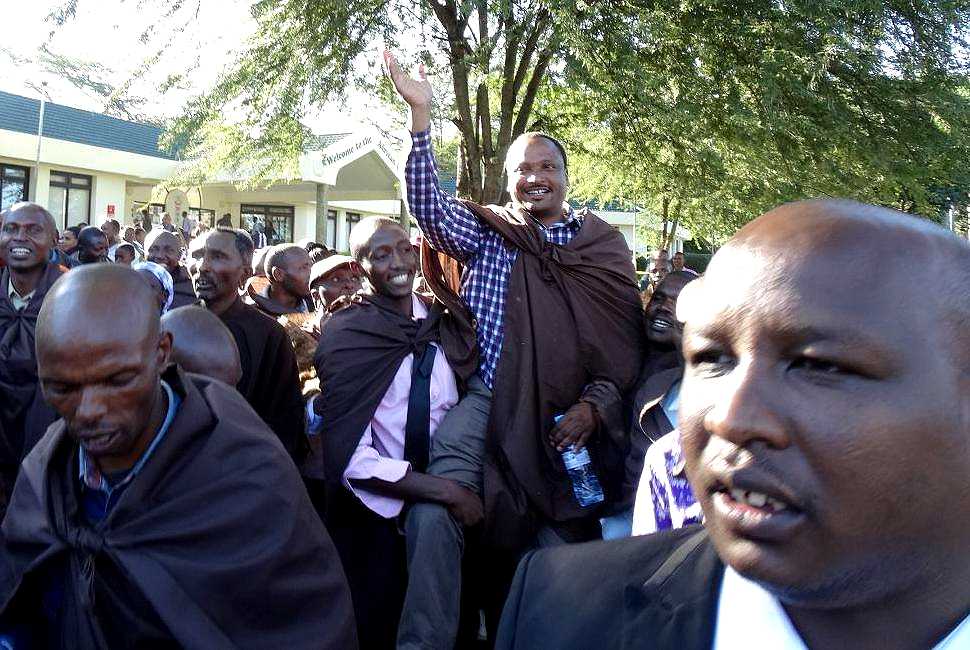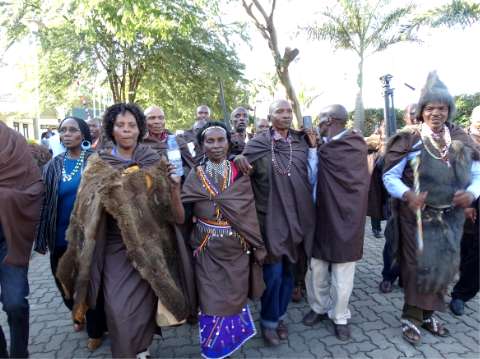NEWS 2017
What next for Ogiek after the African Court’s favourable judgment?

May 27, 2017
Ogiek have 90 days to tender their submissions for reparations following the African Court’s favourable judgment on the community’s case against the Kenyan government.
On May 26, the Arusha-based African Court of Human and Peoples Rights ruled that the Kenyan government had violated seven separate articles
of the African Charter including those related to life, culture, property and religion.
Following the ruling, the Kenyan government is thereby liable to executing appropriate measures ‘within a reasonable time frame to remedy all the violations established and to inform the court of the measures taken within six months from the date of… judgment,’ as the court
directed.
“The issue of Ogiek land rights has finally been heard and the case has empowered them to feel relevant. I know that the case has also given hope to other indigenous peoples: it has made the issues seem real,” said Daniel Kobei, Executive Director for the Ogiek Peoples’ Development Program (OPDP)
"For the Ogiek, this is history in the making,” he noted.

Kobei called upon the government to respect the African Court’s ruling and appealed for deliberate commitment to full implement it.
“I call upon Kenya to nevertheless respect the rights of the Ogiek, given rights over ancestral land, right to non-discrimination are recognized in Constitution and the recently enacted land legislations including Community Land
Act.
The Ogiek, 35, 000 of whom are the victims in the landmark case, live in the Mau Forest Complex in the Rift Valley of Kenya. They are one of the last remaining forest-dwelling communities and among the most marginalized indigenous peoples in Kenya. They sued the Kenyan government for eight violations of their rights to life, property, natural resources, development, religion and culture under the African Charter on Human and Peoples’ Rights, to which Kenya is a signatory.
“Crucially the Court has recognized that the Ogiek – and therefore many other indigenous peoples in Africa – have a leading role to play as guardians of local ecosystems, and in conserving and protecting land and natural resources, including the Mau Forest,’ said Lucy Claridge, MRG’s Legal Director, who argued the case before the Court.
This is the first time the African Court, in operation since 2006, has ruled on an indigenous peoples’ rights case and is by far the largest ever case brought before the Court.
It was originally lodged with the African Commission on Human and Peoples’ Rights, but was referred for the first time in history to the Court on the basis that it evinces serious and mass human rights violations. MRG, Ogiek Peoples’ Development Program (OPDP) and CEMIRIDE were the three original Complainants before the African Commission.
For decades the Ogiek have been routinely subjected to arbitrary forced evictions from their ancestral land in the Mau Forest by the government,without consultation or compensation.
This has had a detrimental impact on the pursuit of their traditional lifestyle, religious and cultural life, access to natural resources
and their very existence as an indigenous people. The Ogiek have a spiritual, emotional and economic attachment to the forest.
They rely on it for food, shelter and identity.

